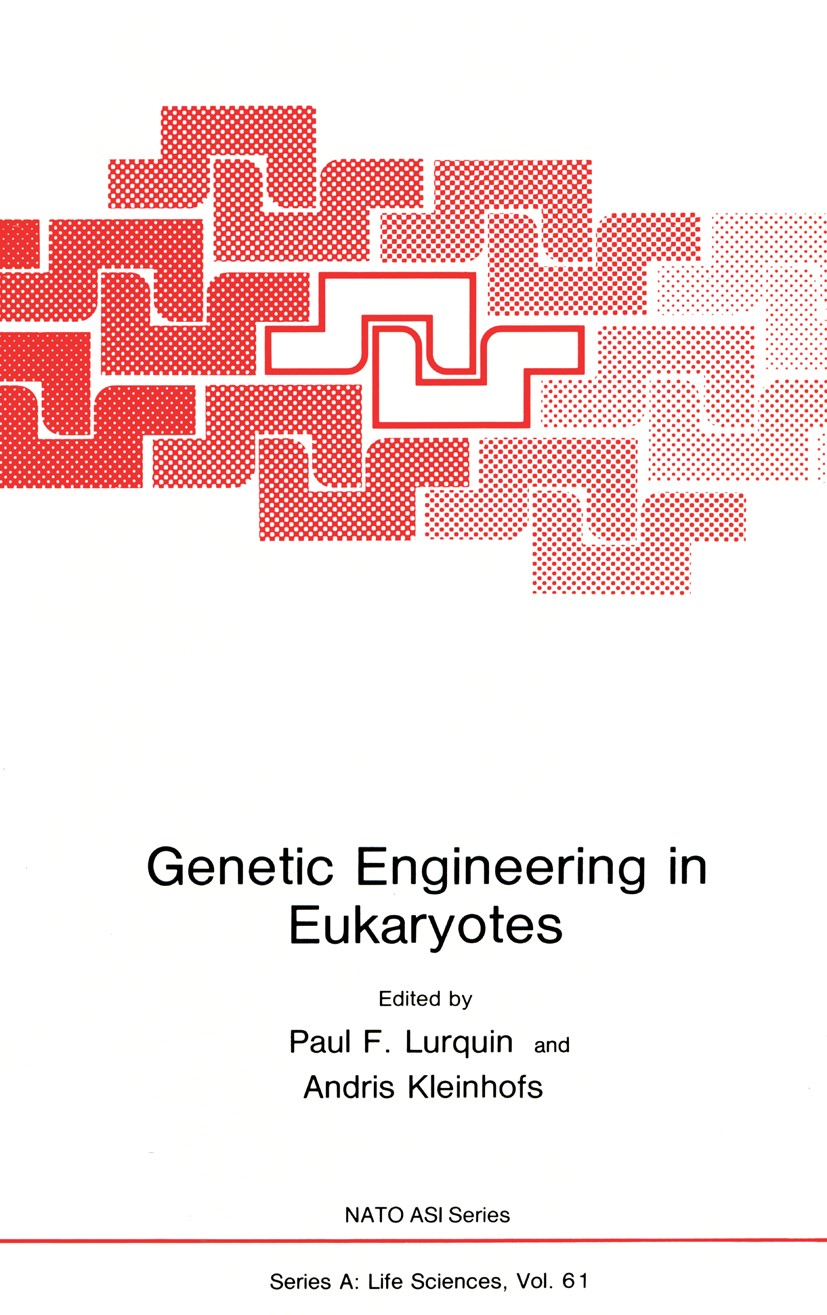| 書目名稱 | Genetic Engineering in Eukaryotes | | 編輯 | Paul F. Lurquin,Andris Kleinhofs | | 視頻video | http://file.papertrans.cn/383/382515/382515.mp4 | | 叢書名稱 | NATO Science Series A: | | 圖書封面 |  | | 描述 | This book includes the proceedings of a NATO Advanced Study Institute held at Washington State University, Pullman, Washington from July 26 until August 6, 1982. Although genetic engineering in eukaryotes is best developed in yeast and mammalian cells, the reader will find that some emphasis has been put on plant systems. Indeed, it was our position that the development of plant cell genetic transformation would benefit from the interactions between a comparatively smaller number of fungal and animal cell experts and a larger number of plant cell specialists representing various aspects of plant molecular genetic research. On the other hand, it is clear that the ultimate achievements of plant genetic engineering will have a tremendous ~pact on, among other things, food production without generating the problems of ethics encountered when one contempla-tes the genetic modification of human beings. Therefore, this slight bias in favor of the plant kingdom simply reflects our belief that a "second green revolution" will benefit mankind to a greater extent than any other kind of genetic engine- ering. The keynote lecture of the Institute was delivered by Dr. John Slaughter, Director of | | 出版日期 | Book 1983 | | 關鍵詞 | ethics; food; genetic engineering; genetic modification; yeast | | 版次 | 1 | | doi | https://doi.org/10.1007/978-1-4684-4493-3 | | isbn_softcover | 978-1-4684-4495-7 | | isbn_ebook | 978-1-4684-4493-3 | | copyright | Springer Science+Business Media New York 1983 |
The information of publication is updating

|
|
 |Archiver|手機版|小黑屋|
派博傳思國際
( 京公網(wǎng)安備110108008328)
GMT+8, 2025-10-10 20:30
|Archiver|手機版|小黑屋|
派博傳思國際
( 京公網(wǎng)安備110108008328)
GMT+8, 2025-10-10 20:30


